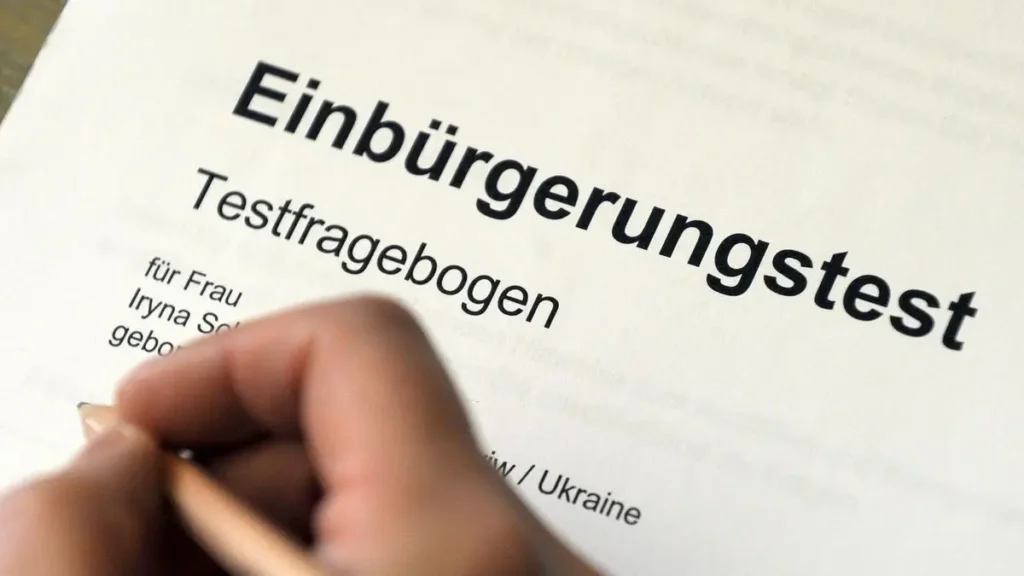Germany’s path to citizenship represents a significant milestone for many foreigners who have built their lives in this diverse and economically vibrant nation. While federal law establishes the fundamental requirements for naturalization across Germany, the practical implementation of these laws can vary considerably from one Bundesland (federal state) to another.
The decentralized nature of Germany’s administrative system means that each of the 16 federal states maintains its own immigration authorities, procedures, and sometimes even interpretations of the citizenship law. This federalized approach creates notable differences in processing times, documentation requirements, and even in how strictly certain criteria are applied.
Are you wondering why your friend in Munich received citizenship faster than you in Berlin? Do you want to know which federal states have the most streamlined processes? Or perhaps you’re considering relocating within Germany to increase your chances of a smoother naturalization process?
What Are the Basic Requirements That Apply Across All Federal States?
Before delving into regional differences, it’s important to understand the foundational requirements that remain consistent throughout Germany. According to the Federal Ministry of the Interior, regardless of where you apply, you must:
- Have legally resided in Germany for at least 8 years (reducible to 6-7 years through integration courses)
- Be financially self-sufficient without relying on social benefits
- Have sufficient German language skills (B1 level generally)
- Pass the citizenship test demonstrating knowledge of German legal and social systems
- Be willing to renounce previous citizenships (with certain exceptions)
- Have no serious criminal record
These core requirements represent the federal baseline that all states must adhere to, but how they verify and assess these requirements can differ substantially.
How Do Processing Times Vary Between Federal States?
One of the most noticeable differences in the naturalization process across federal states is the processing time. The variation can be striking:
| Federal State | Average Processing Time (2022) | Application Volume |
|---|---|---|
| Bavaria | 12-18 months | High |
| Berlin | 24-36 months | Very High |
| Hamburg | 8-12 months | Medium |
| Saxony | 6-10 months | Low |
| North Rhine-Westphalia | 15-24 months | Very High |
These differences often reflect the varying workloads and resource allocations of immigration offices. Berlin’s notoriously long waiting times correlate with its popularity among immigrants and its understaffed citizenship offices.
“When I applied in Dresden, Saxony, my entire process took just 7 months from application to oath ceremony. My colleague who applied in Berlin had been waiting for over two years already. Same qualifications, dramatically different timeline.” – Ahmed, Software Engineer
Processing times can also vary within states, with rural areas typically processing applications faster than major urban centers like Munich, Frankfurt, or Hamburg.
How Do Language Requirement Interpretations Differ?
While B1 German proficiency is the standard requirement across Germany, how this proficiency is verified and exceptions granted varies by state:
- Baden-Württemberg and Bavaria tend to enforce language requirements more strictly, often requiring formal certificates even from applicants who have lived in Germany for decades.
- Berlin and North Rhine-Westphalia may accept long-term employment in a German-speaking environment as evidence of language skills in some cases.
- Lower Saxony often provides additional support for elderly applicants struggling with language requirements.
According to the Federal Office for Migration and Refugees (BAMF), while the B1 requirement is federally mandated, states have some discretion in how they assess language proficiency, particularly for applicants over 60 or those with learning disabilities.
How Does Documentation Scrutiny Differ Between States?
The level of scrutiny applied to your documentation can vary significantly depending on where you apply:
Are Some States More Demanding Than Others?
Indeed, certain federal states have developed reputations for being particularly thorough:
- Bavaria and Baden-Württemberg are known for requesting extensive additional documentation beyond the basic requirements, including detailed financial histories.
- Hesse and Rhineland-Palatinate tend to follow a more standardized approach, generally requesting only the federally mandated documents.
- Bremen and Hamburg have somewhat streamlined their processes with clearer document checklists available online.
“When applying in Munich, I was asked to provide every rental contract I’d had over eight years, all tax returns, and even proof of membership in local clubs as evidence of integration. My friend who applied in Bremen needed much less paperwork.” – Sofia, Professor
What About Dual Citizenship Attitudes?
While dual citizenship restrictions are set at the federal level, the practical approach to the issue varies by state:
- Berlin, Hamburg, and Bremen tend to be more liberal in accepting claims for exemptions from renouncing previous citizenship.
- Bavaria and Saxony generally interpret exemption criteria more narrowly, particularly for non-EU citizens.
According to a report by the Migration Policy Institute, these differences reflect not only administrative variations but sometimes also the political leanings of state governments.
How Do Integration Requirements Vary?
The assessment of “successful integration” into German society is another area where regional differences emerge:
- Baden-Württemberg and Bavaria may place greater emphasis on community involvement and cultural integration.
- Berlin and Brandenburg typically focus more on language skills and economic self-sufficiency as primary integration indicators.
Some states have implemented additional integration programs above the federal requirements. For instance, Hamburg’s Welcome Center offers specialized integration services that can facilitate the citizenship process.
Are There Digital Differences in the Application Process?
The digitalization of the citizenship application process also varies considerably:
- Berlin, Hamburg, and North Rhine-Westphalia have invested in online application systems for at least part of the process.
- Bavaria, Lower Saxony, and several eastern states still largely rely on paper-based applications.
These technological differences can significantly impact the user experience and potentially the processing time of German applications.
How Should You Navigate These Regional Differences?
Understanding these regional variations raises an important question: how can you best navigate them to your advantage?
-
Research your specific state’s requirements: Check the website of your local Einbürgerungsbehörde (naturalization authority) for state-specific guidelines.
-
Consider timing: If you’re planning to relocate within Germany anyway, researching processing times in different states might inform your decision.
-
Prepare comprehensively: Prepare documentation that meets the highest standards, even if your state may be more lenient.
-
Seek local advice: Connect with others who have recently completed the process in your state through forums or community groups.
-
Consider professional help: Immigration consultants familiar with your specific state’s practices can provide valuable guidance.
The Path Forward
Germany’s federal system creates a complex landscape for citizenship applicants, with regional differences that can significantly impact your naturalization journey. While these variations might seem challenging to navigate, they reflect Germany’s rich federal tradition and the autonomy of its states.
The good news is that recent citizenship reform discussions at the federal level may lead to more standardized processes across states. Until then, being informed about your specific state’s approach and requirements remains your best strategy.
Whichever federal state you call home, the reward of German citizenship—with its associated rights, responsibilities, and opportunities—makes navigating these regional differences worthwhile. By understanding these variations and preparing accordingly, you can approach your citizenship journey with greater confidence and clarity.
Frequently Asked Questions
Can I apply for citizenship in a different federal state than where I live?
No, you must apply in the federal state where you have your registered residence (Hauptwohnsitz). Moving just to benefit from a faster process could be considered fraudulent.
Do all states offer the integration course reduction from 8 to 7 years?
Yes, this reduction is part of federal law and applies across all states. However, some states may be more rigorous in assessing the quality and completion of these courses.
Are there any federal states that are particularly friendly to citizenship applicants?
While experiences vary, Bremen, Hamburg, and Berlin have reputations for being more accommodating in their interpretation of requirements, despite Berlin’s longer processing times.
If I’m denied citizenship in one state, can I move and apply in another?
Technically yes, but the reasons for denial will likely remain relevant. Significant issues like criminal records or insufficient language skills will follow you across state lines.
How do fees for citizenship applications vary by state?
The basic citizenship application fee is standardized at €255 for adults and €51 for minor children across Germany. However, some states may charge additional fees for certain services like document verification.



